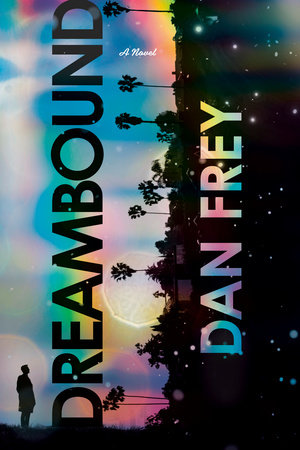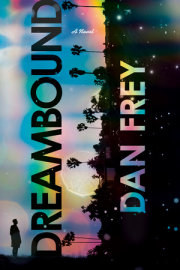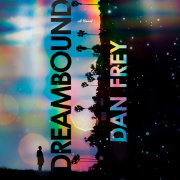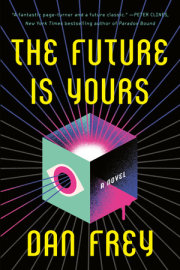Chapter One
Handwritten Note
Dear Mom and Dad,
If you’re reading this, I’ve already left. I’m going to the end of the world and beyond. I won’t say anything more, because you won’t believe me and I already know what you’ll say. Dad, you’ll say that I should live more in reality, and Mom, you’ll say that I should take deep breaths and not make hasty decisions, but I have no choice. I have to go.
Maybe this comes as a surprise to you because you think that on the surface I seem fine. But surfaces can be deceiving. I feel like I am meant for something more. I’m sorry because I know this will be scary, but I don’t belong here. I promise I’ll try to come back in the future. Maybe then I can make it better for all of us.
Sincerely,
Liza
This note was found the morning of March 20, tucked between pages 11 and 12 of a well-worn copy of
Fairy Tale Book One: The Wishing Well.
Excerpt from
Fairy Tale Book One: The Wishing WellBy Annabelle Tobin. Published by Rotterdam Press, 2004. Pages 11–12.
. . . and as Ciara wandered out beyond the edge of her town, she happened into a field. It was an ordinary field that she had passed through a thousand times before. Only this time, it was different. For at the center of the field, there was a well.
Ciara walked closer, inspecting the old-fashioned water well. It looked ancient, with a rotting wooden roof, a fraying rope attached to the pulley, and lichen-covered stones at the base. How curious, Ciara thought as she looked about. Was it possible that she had never noticed it before? Or that she was crossing a different field than she thought?
She approached the well, peering over the lip into the abyss. Far below, she could see the silvery shimmer of the water. But it did not make sense to her that it was silvery. How could moonlight shine upward from a well so deep?
Perhaps it is a wishing-well, Ciara thought, and the instant the notion occurred to her, she felt it to be true. Ciara was twelve years old, and hardly prone to such fanciful thoughts, but this one fit her like a glove. Such was the pain of the fight with her mother and such was her desire for escape that she leaned her head into the cavern of the well. The sounds of the world were drowned out and she was swallowed up by the echoey swish of the water lapping down below.
“I wish I could escape this world,” she whispered into the void, and then shouted, “I wish I were gone forever!” The words reverberated . . . then evaporated into nothingness, like every other wish she’d ever made.
She sighed in resignation and started to push herself back up. But in the process, a stone came loose on the ancient well and fell inward. Ciara’s weight oofed down upon it, and the wall crumbled, sending Ciara tumbling awkwardly into the hole.
Down and down and down she fell, splashing into the water below. The air was knocked out of her lungs and she became disoriented, not sure which way was up or down. Thrashing in her heavy clothes, she felt certain she was going to drown. She churned the dark water desperately, seeking the light. When she glimpsed a glimmer, she swam toward it and gasped to the surface.
Only, it was not the surface she expected. For surfaces, as she would soon learn, can be deceiving.
Once Ciara’s head emerged from the water, she realized she was no longer at the bottom of a deep, crumbling well. She was bobbing on the undulating waves of a lake, its water dappled by the pure silver light of a radiant full moon overhead. As she spun around, trying to orient herself, she discovered there was a second moon, this one crescent-thin, hanging at the opposite end of the sky. Ciara looked back and forth between the two, marveling at the impossibility.
She dragged herself up onshore and found herself at the edge of a dense, dark forest. A shape zipped through her periphery—a bird, she presumed, judging by its size and speed. But as she tracked it with her eyes, she saw that it was not a bird at all, for birds do not have purple wings and arms and legs and silvery crowns on their heads. And a bird would not stop midair, studying Ciara with a quizzical gaze. A bird would not laugh and shoot off into the canopy trailing dewy bubbles in its wake.
Her eyes followed the creature, and she was disappointed as she lost sight of it amid the branches overhead. But when she looked closer, she realized that the branches were swaying, not with the wind but with a deliberate sense of purpose. Some reached for each other and clasped twigs as though holding hands.
As her gaze traced back down the trunks of the living trees, she found that two of those in front of her were stepping to the side by slowly lifting their roots from the dirt, finding new purchase, and scooting away in opposite directions. . . .
All to make room for a massive redwood, its trunk thick as a house, striding forward and towering above her. Ciara watched, awestruck, as a huge hollow in its bark opened, forming a mouth that spoke to her in a warm, deep baritone:
“You. Are. Ciara?”
Her mouth was too dry, and her lips too violently trembling, to vocalize a response. But she was able, with some difficulty, to nod. To her surprise, the redwood’s mouth curled upward into a grin as it spoke again: “Welcome to the Hidden World.”
Excerpt from Police Interview with Byron Kidd
Boston Fourth Precinct Police Station. April 18, 9:55 a.m.
DET. CORDOBA: The note she left . . . you said you found it inside a book?
BYRON: Yes. Her favorite one. Tucked between pages like a bookmark.
DET. CORDOBA: And you think she wanted you to find it there?
BYRON: Definitely. On that particular page. What’s happening in the story—the main character is a girl who runs away and gets whisked off to another world.
DET. CORDOBA: And you think that’s the reason Liza ran away.
BYRON: Inspired by this. Obviously.
DET. CORDOBA: How about you walk me through the day your daughter ran away again. You had an argument . . . ?
BYRON: I didn’t even talk to her the day she left. She’s very independent. We let her make her own dinner sometimes, and I was under deadline, and . . . we just missed each other.
DET. CORDOBA: The last conversation you did have, then. The day before?
BYRON: That was . . . not an argument, but . . . she was upset.
DET. CORDOBA: I see. And why was that?
BYRON: She asked me for money, for a costume. These books and films she’s into, there are people who dress up as the characters. It’s ridiculous, how much they spend on things.
DET. CORDOBA: So you said no.
BYRON: You have to have boundaries. Rules.
DET. CORDOBA: And what did she say? When you refused her.
BYRON: She’s a twelve-year-old girl who didn’t get what she wanted, what do you expect? She was mad. Saying that . . . I don’t support her choices. Don’t believe in her, and never did, and . . . yeah, that was the last thing she said to me.
DET. CORDOBA: Is it true? That you don’t believe in her?
BYRON: What kind of . . . How is this supposed to help my daughter?
DET. CORDOBA: Based on my experience, when kids run away, it’s not about what they’re running to so much as what they’re running from.
BYRON: What are you suggesting?
DET. CORDOBA: Nothing, sir, I’m just saying—
BYRON: She’s been gone for almost a month, and you’ve got nothing. Except for her cell phone used once, out in California, and you haven’t even gone out there to follow up on that!
DET. CORDOBA: Sir, we’re confident that the cell phone was stolen.
BYRON: But you don’t know that.
DET. CORDOBA: I find it extremely unlikely that a twelve-year-old girl traveled across the country, from Boston to Los Angeles, in less than three days, without using her phone once. And then used it exactly once, in L.A., before shutting it off permanently. We’ve had the LAPD check out the last-known-use location. It’s a dead end.
BYRON: So now you’re trying to turn this around on me, like it’s—
DET. CORDOBA: Not at all, I’m just . . . I find it unlikely that a book is to blame here, even if it did have special meaning to her.
BYRON: Special meaning would be an understatement. These books were her life. She had toys and T-shirts and books about the books, and . . . you know what she wanted for her birthday last year? She wanted me to paint the Wishing Well on the inside of her bedroom door. And I did! My wife insisted. It didn’t look great, I’m not much of an artist, but Liza acted like it was the best present I ever gave her.
Copyright © 2023 by Dan Frey. All rights reserved. No part of this excerpt may be reproduced or reprinted without permission in writing from the publisher.







